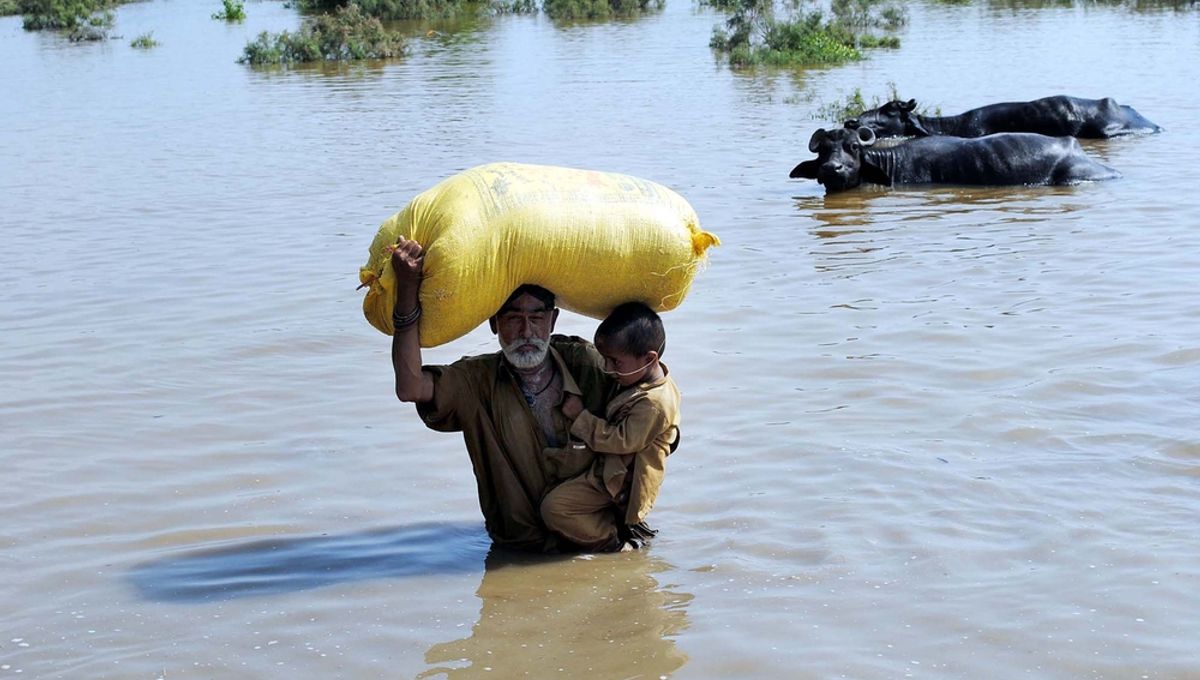
Hailed as a “historic” moment for international climate justice, the heated topic of “loss and damage” finally made it onto the agenda at COP27. This means that the ongoing climate summit in Egypt must include discussions about richer nations helping to pay poorer nations to help them deal with the mounting damage linked to global warming.
Loss and damage is climate jargon referring to the harm and costs caused by the climate crisis, including the damage from extreme weather events we’re already seeing – such as hurricanes, heatwaves, wildfires, and drought – as well as the impact from slower burning consequences of climate breakdown – such as the sea-level rise and melting glaciers.
In many cases, developing countries are already experiencing the harshest impacts of climate change but are the least to blame for the greenhouse gas emissions that caused the crisis.
As such, developing countries and activists have been pushing for loss and damage discussions since COP meetings started in the early 1990s, but it has continually been sidelined by richer nations who would have to foot the bill.
Finally, the issue has made it to the summit’s agenda for the first time, following intense preliminary negotiations that concluded Sunday evening in Sharm El-Sheikh, Egypt.
“The inclusion of this agenda reflects a sense of solidarity and empathy with the suffering of the victims of climate-induced disasters and to this end, we all owe a debt of gratitude to activists and civil society organizations who have persistently demanded a space to discuss funding for loss and damage. And that’s provided the impetus needed to bring this matter forward”, Egypt’s Foreign Minister and COP27 president Sameh Shoukry reportedly said.
50% of global emissions are emitted by just 10% of the population.
90% of global emissions by 50% of the population.#COP27 needs to recognise climate justice & the rich💰must change NOW pic.twitter.com/DgkZH3jf8j
Pakistan, which was hit by historic flooding this year that was supercharged by climate change, is said to be one of the countries that led the push for this topic to make the summit’s agenda.
In the small print, the agenda says that this will not involve countries accepting liability for climate change. However, Shoukry added that delegates should set up a process for dealing with loss and damages “no later than 2024”.
Another major theme of this year’s COP is implementation, so it’s still important that world powers actually act on their words. However, the discussions about who should be paying out for climate damages – and how much – are likely to be anything but straightforward.
“It’s historic that loss and damage finance is at last on the agenda at COP. The details should be decided by 2024 at the latest, but this should not be used to further delay,” Ines Benomar, Loss and Damage expert at independent climate think tank E3G, said in a statement seen by IFLScience.
“It is crucial that parties engage in meaningful discussions at COP27 to ensure the highest ambition outcome for loss and damage financing is achieved, and that all options available both inside and outside the UNFCCC are considered well within the proposed timeline”, continued Benomar.
Source Link: For First Time, COP27 To Discuss Paying Poorer Nations For Climate Damages